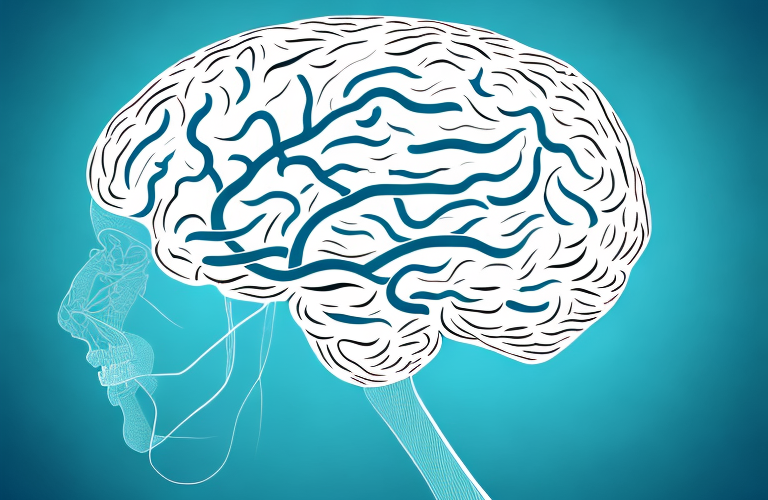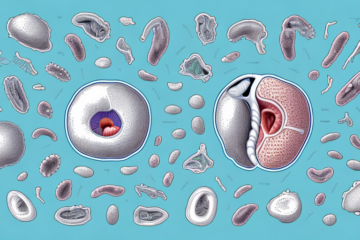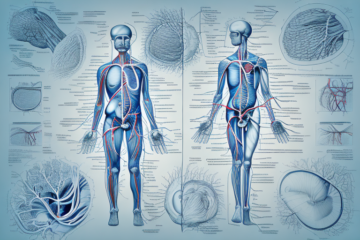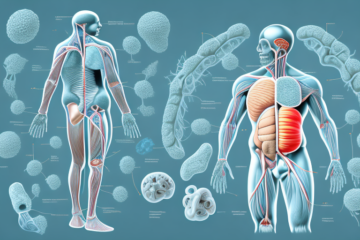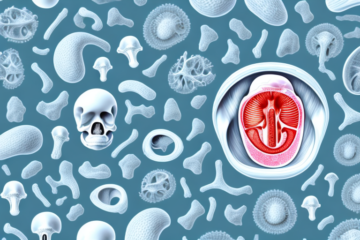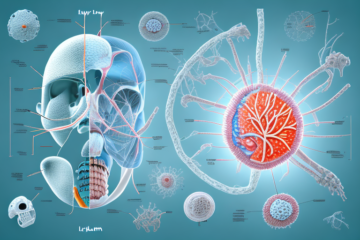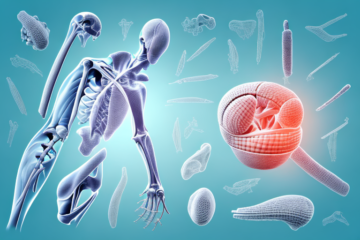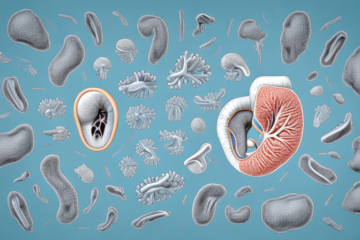The hypothalamus is a small but essential region of the brain, responsible for regulating various vital bodily functions. Located deep within the brain near the pituitary gland, this tiny structure plays a critical role in maintaining homeostasis in the body. In this article, we’ll discuss the function and anatomy of the hypothalamus, as well as its connection to various physiological processes, disorders, and treatments.
What is the Hypothalamus and Where is it Located?
The hypothalamus is a region of the brain located just above the brainstem and below the thalamus. This small region weighs only around 4 grams, but it holds a significant role in regulating the body’s physiological processes. The hypothalamus is composed of several distinct nuclei, each responsible for regulating different functions in the body, such as hunger, thirst, temperature control, and sleep-wake cycles.
Additionally, the hypothalamus plays a crucial role in the body’s endocrine system by controlling the release of hormones from the pituitary gland. It also helps to regulate the body’s stress response through the release of corticotropin-releasing hormone (CRH). Dysfunction of the hypothalamus can lead to a variety of health issues, including obesity, sleep disorders, and hormonal imbalances.
The Role of the Hypothalamus in the Endocrine System
The hypothalamus plays a crucial role in regulating the endocrine system, which produces and secretes hormones into the bloodstream. Through its control of the pituitary gland, the hypothalamus coordinates the release of essential hormones, such as growth hormone, prolactin, and thyroid-stimulating hormone. This regulation ensures that hormones are secreted in the correct amounts and at the appropriate times.
Additionally, the hypothalamus is responsible for regulating the body’s response to stress. When the body experiences stress, the hypothalamus activates the sympathetic nervous system, which triggers the “fight or flight” response. This response includes the release of hormones such as adrenaline and cortisol, which prepare the body to respond to the stressor. The hypothalamus also plays a role in regulating appetite and body temperature, further highlighting its importance in maintaining homeostasis in the body.
How Does the Hypothalamus Control Hunger and Thirst?
The hypothalamus is responsible for controlling hunger and thirst levels in the body. The hypothalamus contains specialized cells that monitor nutrient and water levels in the body and adjust hunger and thirst accordingly. When the body needs food or water, the hypothalamus triggers a series of hormonal and neural signals that result in hunger or thirst sensations and stimulate intake. On the other hand, when the body is sufficiently hydrated or fed, the hypothalamus sends signals that inhibit hunger and thirst sensations.
Research has shown that the hypothalamus also plays a role in regulating metabolism and energy expenditure. When the body is in a state of starvation or low energy, the hypothalamus can slow down metabolism and conserve energy. Conversely, when the body has excess energy, the hypothalamus can increase metabolism and promote energy expenditure.
In addition to hunger and thirst, the hypothalamus is also involved in regulating other bodily functions such as body temperature, sleep, and stress responses. The hypothalamus acts as a control center for the autonomic nervous system, which regulates involuntary bodily functions such as heart rate and breathing. It also communicates with the pituitary gland to release hormones that affect various bodily processes.
The Hypothalamus and its Connection to Emotions and Mood
The hypothalamus has important connections to the limbic system, which is responsible for controlling emotional and behavioral responses. The hypothalamus plays a significant role in stress responses and emotional regulation. Studies have shown that alterations in the hypothalamic-pituitary-adrenal axis, which regulates the body’s response to stress, can result in a range of emotional and psychological disorders, such as depression and anxiety.
Furthermore, the hypothalamus is also involved in regulating the body’s circadian rhythm, which is the internal biological clock that controls the sleep-wake cycle. Disruptions to the circadian rhythm can lead to mood disorders, such as bipolar disorder and seasonal affective disorder. The hypothalamus also plays a role in regulating appetite and metabolism, which can impact mood and emotional well-being. Therefore, understanding the complex connections between the hypothalamus and various bodily functions is crucial in developing effective treatments for emotional and psychological disorders.
The Relationship between the Hypothalamus and Sleep
The hypothalamus is involved in regulating sleep-wake cycles in the body. Through its connection with the pineal gland, the hypothalamus controls the release of melatonin, which is essential for regulating circadian rhythms and ensuring healthy sleep patterns. Disruptions to the hypothalamic regulation of sleep can result in conditions like insomnia, sleep apnea, and other sleep disorders.
Research has shown that the hypothalamus also plays a role in the regulation of REM (Rapid Eye Movement) sleep, which is the stage of sleep associated with dreaming. During REM sleep, the hypothalamus inhibits the release of neurotransmitters that control muscle movement, which prevents us from acting out our dreams. This is why people with certain sleep disorders, such as REM sleep behavior disorder, may physically act out their dreams.
In addition to its role in sleep regulation, the hypothalamus is also involved in the regulation of appetite and metabolism. Studies have shown that disruptions to the hypothalamus can lead to changes in appetite and weight, as well as metabolic disorders like diabetes. This highlights the importance of maintaining a healthy sleep schedule and circadian rhythm, as it can have a significant impact on overall health and well-being.
The Impact of Hormonal Imbalances on the Hypothalamus
The hypothalamus is sensitive to hormonal imbalances and can be negatively impacted by certain endocrine disorders. For example, abnormalities in the production of thyroid hormones can result in hypothalamic dysfunction, leading to a range of symptoms, such as fatigue and weight changes.
Additionally, research has shown that hormonal imbalances in the hypothalamus can also affect mood and behavior. For instance, imbalances in estrogen and progesterone levels have been linked to depression and anxiety in women. Similarly, disruptions in the production of testosterone can lead to mood swings and irritability in men.
Diseases and Disorders Associated with the Hypothalamus
There are a range of diseases and disorders associated with the hypothalamus, including hypothalamic-pituitary tumors, hypothalamic dysfunction syndrome, and hypothalamic obesity. Other conditions linked to hypothalamic dysfunction include diabetes insipidus, Kallmann syndrome, and Prader-Willi syndrome. Symptoms of hypothalamic disorders can range from hormonal imbalances to abnormal body temperature regulation and sleep disturbances.
Hypothalamic-pituitary tumors are growths that develop in the pituitary gland or hypothalamus. These tumors can cause hormonal imbalances, leading to symptoms such as weight gain, fatigue, and changes in menstrual cycles. Treatment options for these tumors include surgery, radiation therapy, and medication.
Hypothalamic dysfunction syndrome is a condition that occurs when the hypothalamus is not functioning properly. This can lead to a range of symptoms, including fatigue, weight gain, and mood changes. Treatment for this condition may involve medication to regulate hormone levels or lifestyle changes to improve overall health.
Treating Hypothalamic Disorders: Medications, Surgery, and More
The treatment of hypothalamic disorders largely depends on the specific condition and the underlying cause. In some cases, medications or hormone replacement therapy may be prescribed. Surgical intervention may also be necessary to remove tumors or other abnormalities affecting the hypothalamus. In other cases, lifestyle changes, such as dietary modifications and weight management, may be implemented to managing symptoms.
Another treatment option for hypothalamic disorders is radiation therapy. This involves using high-energy radiation to target and destroy abnormal cells in the hypothalamus. Radiation therapy may be used in conjunction with surgery or as a standalone treatment.
In addition to medical treatments, therapy and counseling may also be beneficial for individuals with hypothalamic disorders. This can help them cope with the emotional and psychological effects of their condition, as well as provide support for managing symptoms and making lifestyle changes.
Future Research Directions in Understanding the Hypothalamus
As with other areas of the brain, there is much we still do not understand about the hypothalamus. Advances in brain imaging and molecular biology have opened up new avenues for scientific exploration, and ongoing research is continually uncovering new insights into the critical role this tiny region plays in maintaining the body’s homeostasis. Better understanding the hypothalamus’s function will likely lead to improved treatments for diseases and disorders affecting this essential region of the brain.
In conclusion, the hypothalamus is a small but critical region of the brain responsible for regulating various essential physiological processes in the body. Its role in maintaining homeostasis and controlling vital functions like hunger, thirst, and sleep makes it an essential area of study in both basic and clinical neuroscience.
One area of future research in understanding the hypothalamus is the investigation of its role in regulating emotional and social behavior. Recent studies have suggested that the hypothalamus may play a crucial role in modulating social behavior, including aggression, mating, and parenting. Further research in this area could lead to a better understanding of the neural mechanisms underlying social behavior and may have implications for the treatment of social and emotional disorders.

